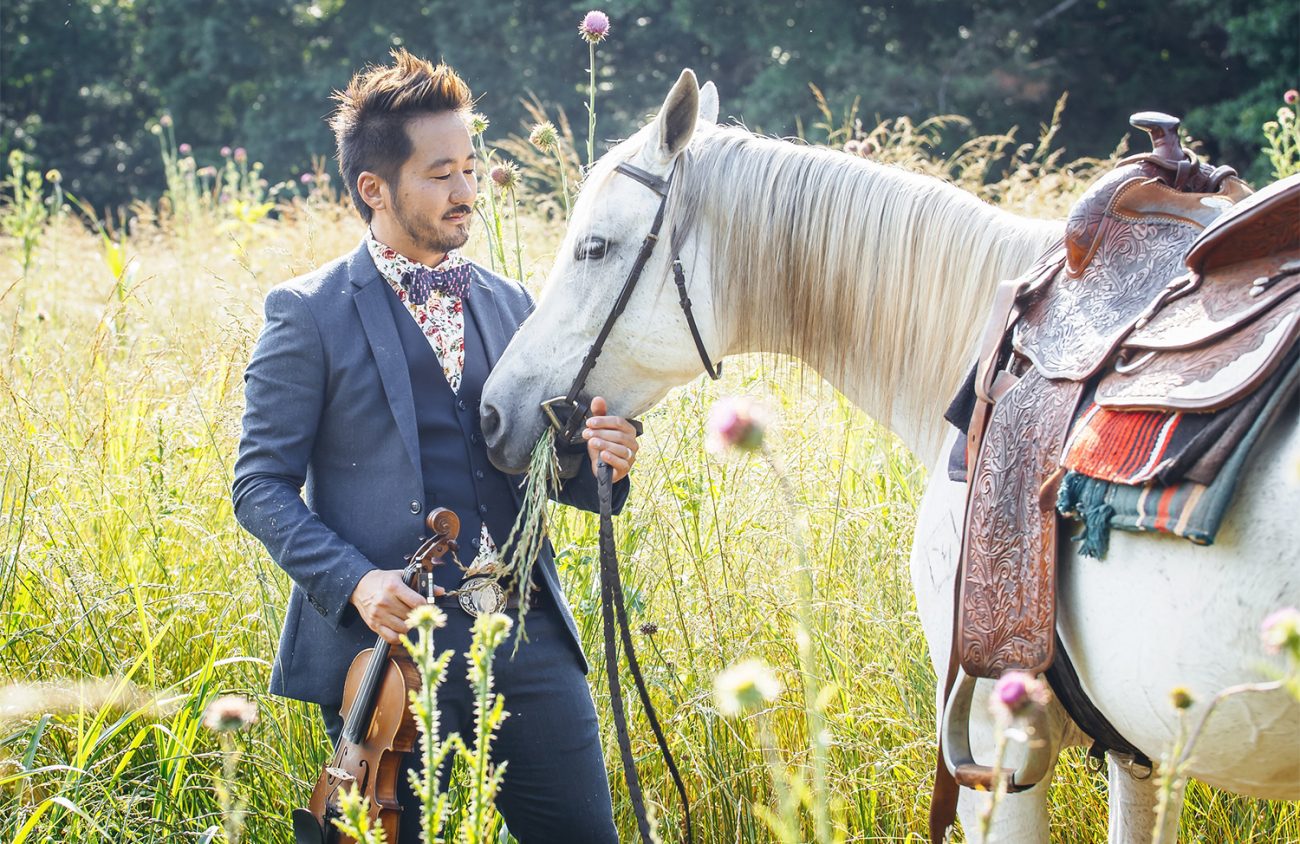While writing his latest record, Kaoru Ishibashi, who performs as Kishi Bashi, visited the sites of former World War II-era Japanese-American internment camps to absorb the history and hear the stories of survivors.
His goal was to make music that reflects the U.S. as it is today, combustible and divided, by looking to another problematic period of American history. Kishi Bashi describes himself as a pretty positive guy, so the deep-dive into Japanese-American internment was difficult at first.
“There’s really nothing upbeat about injustice,” he says. “The more I studied World War II, the more insane I found it was — the crazy choices people had to make. You can’t even understand today.”
Born in Seattle, Kishi Bashi grew up in Virginia. A classically trained violinist, Kishi Bashi was a metalhead in high school. He studied film scoring at Berklee College of Music and played jazz in New York.
“I really got into instrumental music,” Kishi Bashi tells me over the phone. “I do really orchestral composition. Most of my songs are arranged for string quartet or orchestra; singing was an afterthought.”
The more Kishi Bashi sang, however, the more people came to his shows, and those shows were a valuable outlet. “I’ve always been a performer,” he says, despite the fact he doesn’t like to stick out in social situations. Performing is his one chance to be himself, he says.
Despite its tough subject matter, his new record, Omoiyari, is a strikingly beautiful and often romantic collection of contemporary folk music, chamber pop and neo-classical, evoking wintertime, the season in which Kishi Bashi visited many of the internment camps.
You can hear it in the tone of the music: a cold sun rising over the mountains, dew-dappled grass or a frost-covered windowpane. “Omoiyari” is a Japanese word that translates into something like “empathy,” but also “compassion,” a cousin of sorts to that old Western chestnut about walking a mile in someone else’s shoes.
That’s reflected in the line “I want to see the world the way you do,” as Kishi Bashi sings on the Omoiyari song “Marigold.”
At its heart, Omoiyari is hopeful and even prone to occasional flights of fancy, like the autoharp intro to the album-opener “Penny Rabbit and Summer Bear,” which has Kishi Bashi singing in a gentle falsetto: “Faithless and mystic, faint as can be, Penny Rabbit floated fast, planted his paws upon the shore, many others had failed before.”
Elsewhere, Kishi Bashi’s background in film scoring shows up in the cinematic scope of Omoiyari songs like “Violin Tsunami,” with its highly melodramatic violin line accompanied by a choral arrangement — voices in harmony, one of the purest forms of human cooperation. This is humanity at its best, taking a stand against the album’s dark points of inspiration.
While he was immersing himself in the period of Japanese internment, parallels emerged between America then and America now. The stories of how resilient humans can be kept Kishi Bashi going.
“Xenophobia, Islamophobia, anti-immigrant views have always been around us,” he says. “You really should do your best to not fear things, to let that affect policy, to affect your worldview. In this country, we’re all immigrants.”
Kishi Bashi performs with Takenobu 8 pm Thursday, Oct. 10, at WOW Hall; $20 advance, $22 door, all-ages.
